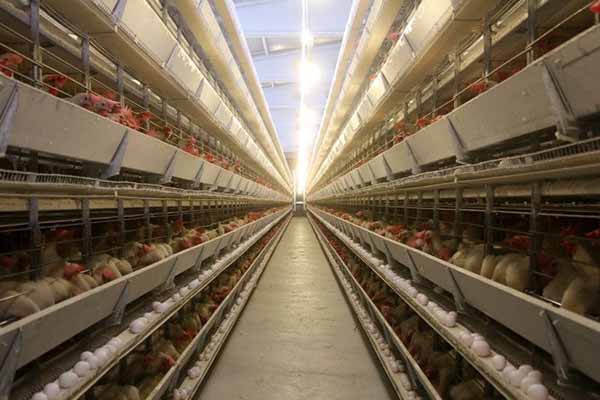Starting a Poultry Farm in Ghana: A Comprehensive Guide
Time : 2025-05-13
Are you dreaming of starting your own poultry farm in Ghana? You’ve come to the right place! Poultry farming is a lucrative business venture that can provide a stable income and contribute to food security in the country. In this guide, we’ll walk you through the essentials of starting a poultry farm in Ghana, from choosing the right location to marketing your products.
1. Market Research and Business Plan
Before you dive into poultry farming, it’s crucial to conduct thorough market research and create a solid business plan. Here’s what you need to do:
1.1 Identify Your Target Market
Determine who your customers will be. Are you aiming for local farmers’ markets, supermarkets, or direct sales to consumers? Knowing your target market will help you tailor your business strategy.
1.2 Analyze the Competition
Understand who your competitors are and what they offer. This will help you identify your unique selling points and how to differentiate your farm from others.
1.3 Develop a Business Plan
Your business plan should include an executive summary, business description, market analysis, organization and management, service or product line, marketing and sales strategy, funding request, and financial projections.
2. Choosing the Right Location
The location of your poultry farm is critical to its success. Here are some factors to consider:
2.1 Proximity to Your Target Market
Choose a location that is easily accessible to your customers. This will reduce transportation costs and ensure timely delivery of your products.
2.2 Availability of Water and Electricity
Adequate water supply is essential for poultry farming. Ensure that your chosen location has a reliable water source. Similarly, access to electricity is important for running equipment and maintaining proper temperatures.
2.3 Zoning Regulations
Check local zoning laws to ensure that poultry farming is permitted in the area. Some regions may have specific regulations or restrictions regarding farming activities.
3. Poultry Farm Design and Infrastructure
A well-designed poultry farm will ensure the health and productivity of your birds. Here are some key considerations:
3.1 Farm Layout
Plan your farm layout carefully. Separate different areas for brooding, growing, and laying hens. This will help minimize the spread of diseases.
3.2 Housing
Build sturdy and well-ventilated housing for your birds. Ensure that each pen has enough space for the number of birds you plan to keep. Proper lighting and temperature control are also essential.
3.3 Equipment
Invest in quality equipment such as feeders, waterers, and heating/cooling systems. Regular maintenance of this equipment is crucial for the success of your farm.
4. Feeding and Nutrition
Proper nutrition is the foundation of a healthy poultry flock. Here’s what you need to know:
4.1 Feed Ingredients
Choose high-quality feed ingredients that are appropriate for the age and stage of your birds. Consult with a poultry nutritionist to develop a balanced diet.
4.2 Feed Management
Store feed in a dry, cool place to prevent spoilage. Ensure that your birds have access to clean water at all times.
4.3 Health Monitoring
Regularly monitor your birds’ health and adjust their diet as needed. Consult with a veterinarian for any health concerns.
5. Health Management and Biosecurity
Maintaining the health of your poultry flock is crucial. Here are some key health management practices:
5.1 Vaccination Program
Implement a vaccination program to protect your birds from common diseases. Work with a veterinarian to develop a customized vaccination schedule.
5.2 Biosecurity Measures
Adopt strict biosecurity measures to prevent the introduction of diseases onto your farm. This includes controlling access to the farm, cleaning and disinfecting equipment, and practicing good hygiene.
6. Marketing and Sales
Marketing your poultry products is essential for generating revenue. Here are some strategies to consider:
6.1 Branding
Create a strong brand identity for your poultry farm. This can include a catchy name, logo, and packaging design.
6.2 Direct Sales
Consider direct sales to local markets, restaurants, or individuals. This can help you build a loyal customer base.
6.3 Online Presence
Set up an online presence through a website or social media platforms. This will help you reach a wider audience and provide information about your products.
7. Financial Planning
Managing your finances is critical for the sustainability of your poultry farm. Here are some tips:
7.1 Budgeting
Create a detailed budget that includes all your expenses, such as feed, equipment, labor, and marketing. Track your expenses and income regularly.
7.2 Financing
Consider various financing options, such as loans, grants, or investment from friends and family. Ensure that you have a clear repayment plan.
Conclusion
Starting a poultry farm in Ghana can be a rewarding and profitable venture. By following these steps and staying informed about the industry, you’ll be well on your way to a successful poultry farming business.












